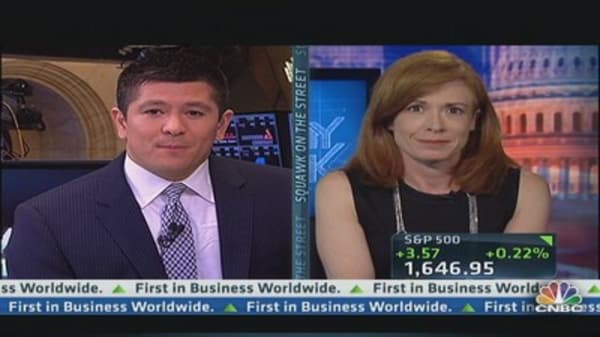As home prices rise, demand for jumbo mortgages is rising too. And as investors look for new ways to cash in on the housing recovery, these mortgages are starting to look more attractive.
Since the housing crash began, the market for jumbo mortgage-backed securities, pools of these loans sold to investors, has been close to nothing. Banks still make the loans, but hold them on their books. Now that is beginning to change.
(Read More: Jumbo Mortgage: CNBC Explains)
While the number of jumbo loans originated in the first quarter of this year was up 15 percent from a year ago, the number of those loans securitized and sold by lenders was up 400 percent, according to Inside Mortgage Finance. Four billion worth of jumbo loans were sold to investors, more than the $3.5 billion in jumbos originated in all of 2012.





